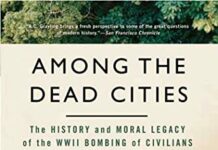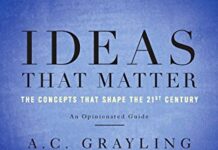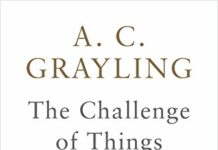
Ebook Info
- Published: 2013
- Number of pages: 243 pages
- Format: PDF
- File Size: 2.85 MB
- Authors: A. C. Grayling
Description
A central bond, a cherished value, a unique relationship, a profound human need, a type of love. What is the nature of friendship, and what is its significance in our lives? How has friendship changed since the ancient Greeks began to analyze it, and how has modern technology altered its very definition? In this fascinating exploration of friendship through the ages, one of the most thought-provoking philosophers of our time tracks historical ideas of friendship, gathers a diversity of friendship stories from the annals of myth and literature, and provides unexpected insights into our friends, ourselves, and the role of friendships in an ethical life. A. C. Grayling roves the rich traditions of friendship in literature, culture, art, and philosophy, bringing into his discussion familiar pairs as well as unfamiliar—Achilles and Patroclus, David and Jonathan, Coleridge and Wordsworth, Huck Finn and Jim. Grayling lays out major philosophical interpretations of friendship, then offers his own take, drawing on personal experiences and an acute awareness of vast cultural shifts that have occurred. With penetrating insight he addresses internet-based friendship, contemporary mixed gender friendships, how friendships may supersede family relationships, one’s duty within friendship, the idea of friendship to humanity, and many other topics of universal interest.
User’s Reviews
Reviews from Amazon users which were colected at the time this book was published on the website:
⭐`If I have to choose between betraying my country and betraying my friend, I hope I should have the guts to betray my country’ so said E M Forster. What is it about friendship that places loyalty to friends above patriotism? That is the subject of inquiry in A C Grayling’s latest book. He traces the contemplations about friendship from the time of Socrates, through the medieval period, the Renaissance, and the modern era. Plato laid the groundwork and, building from his teacher, Socrates, held that mutual utility is the foundation of friendship. Aristotle agreed with Plato regarding many of the attributes of a good friend. However, he differed crucially with Plato that friendship is founded on mutual utility. Aristotle believed that friendship is a value to be desired in itself, and that it is a necessary constituent of the good life.Grayling examines the different kinds of friendship. He considered the friendship between men, and that between women; he considered the friendship between the old and the young; and friendships with and without a sexual content. In all of these, he gathers the ostensible features that one might associate with a good friendship. He explores the circumstances that enable friendship to bloom. Quoting Plutarch, he writes, `The soul suitable for many friendships must be impressionable, and versatile, pliant, and changeable. But friendship requires a steady, constant and unchangeable character, a person that is uniform in his intimacy.’Throughout the length of his inquiry, Grayling finds a case for the quality that makes one a friend. It is the very specialness of friendship that implies that a friend is special. However, to be special means that we must be set the `special’ apart from others – ‘A friend to all is a friend to none’. This raises a serious question – can we truly have friends if we are to love one another equally?
⭐A good summary of classical works regarding friendship but seems to skip lightly over recent contributions, particularly light with regard to friendships between the sexes. Mr Grayling spends significant time worrying over the distinction between sexual relationships and friendships but doesn’t seem to get to the core of friendship itself.
⭐I’m still reading and enjoying the book — very well-written and interesting from a biographical perspective. I’ve never complained about the typography of a book before, but in the paperback edition the text reads deep into the gutter of the book. Irritating, Yale Univ. Press.
⭐A thorough treatment of the historical perspectives in this area, but relatively brief on the contemporary situation and the day to day issues that we all have to deal with – a great opportunity lost to provide a more complete treatment of this fascinating subject.
⭐It’s surprising just how deep this book actually is. There’s more to friendship than meets the eye, and Prof. Grayling manages to make the subject clear in an easy-to-read manner.
⭐Personally I found it very difficult reading. The book is far too philosophical for me. Friends enjoyed it immensely. It is very well written and covered an extremely wide range of time periods through history – Greeks, Romans, Renaissance, Enlightenment, up to modern times. The concept of friendship and how this has changed is discussed at length. The final two chapters pull ideas together and even include some of the author’s personal experiences. The extent and wealth of Grayling’s knowledge and powers of reasoning must be acknowledged
⭐This book never achieves what it sets out to do; it never gets to the heart of friendship. And as such, I would not recommend this book to anyone who has not already spent a great deal of time contemplating and reading about Friendship elsewhere. This book is only really useful in its ability to refer the reader to other writers who have addressed Friendship.On an a more personal note, I was bothered by Grayling’s discussion on Christianity and Friendship. His analysis struck me as philosophically uncharitable. But perhaps this was to be expected from someone described as the “Fifth Horseman of New Atheism.”
⭐“The idea of seeing friendship as a relationship in important part predicated on wishing the good, and promoting the good, for one’s friend, and of this itself contributing to the good of one’s own life, is surely part of what we have to mean by friendship, and although it seems, once it is explicitly stated, an obvious enough insight, it is too central to be treated as merely implicit.”This is the first in a series of books, “Vices and Virtues” published by Yale University Press. The author is a philosopher who has written thirty other books. This book is a history of the philosophy of friendship and as such, is disjointed and difficult to follow; the organization of the basic elements seems rather chaotic. By contrasting different philosophies of friendship without background on the basic tenets of that philosophy the reader may become confused. Also, because of this approach, the woman’s side of friendship is basically ignored. The author roots friendship in male love which he describes as more than platonic friendship. One of the more interesting parts of the book is the description of eulogies delivered by artist-friends from the book, “The Company They Kept”. This reader is excited to read this since as the author admits, “their variety throws more light on the diversity and possibilities of friendship than a treatise like this one can.” The book is most delightful when the author cites true life friendships such as George Eliot and G.H. Lewes. These friendships truly brought out the best in the other person. This book is a good gift choice for your philosophically studied friend.
⭐Lovely summary of essays on friendship especially first half of book somehow tedious later in book
⭐Everything ACG writes worth reading and reflecting on!
⭐A very good historical account, but less enjoyable than his New Scientist articles used to be. However, well worth reading.
Keywords
Free Download Friendship (Vices and Virtues) in PDF format
Friendship (Vices and Virtues) PDF Free Download
Download Friendship (Vices and Virtues) 2013 PDF Free
Friendship (Vices and Virtues) 2013 PDF Free Download
Download Friendship (Vices and Virtues) PDF
Free Download Ebook Friendship (Vices and Virtues)





